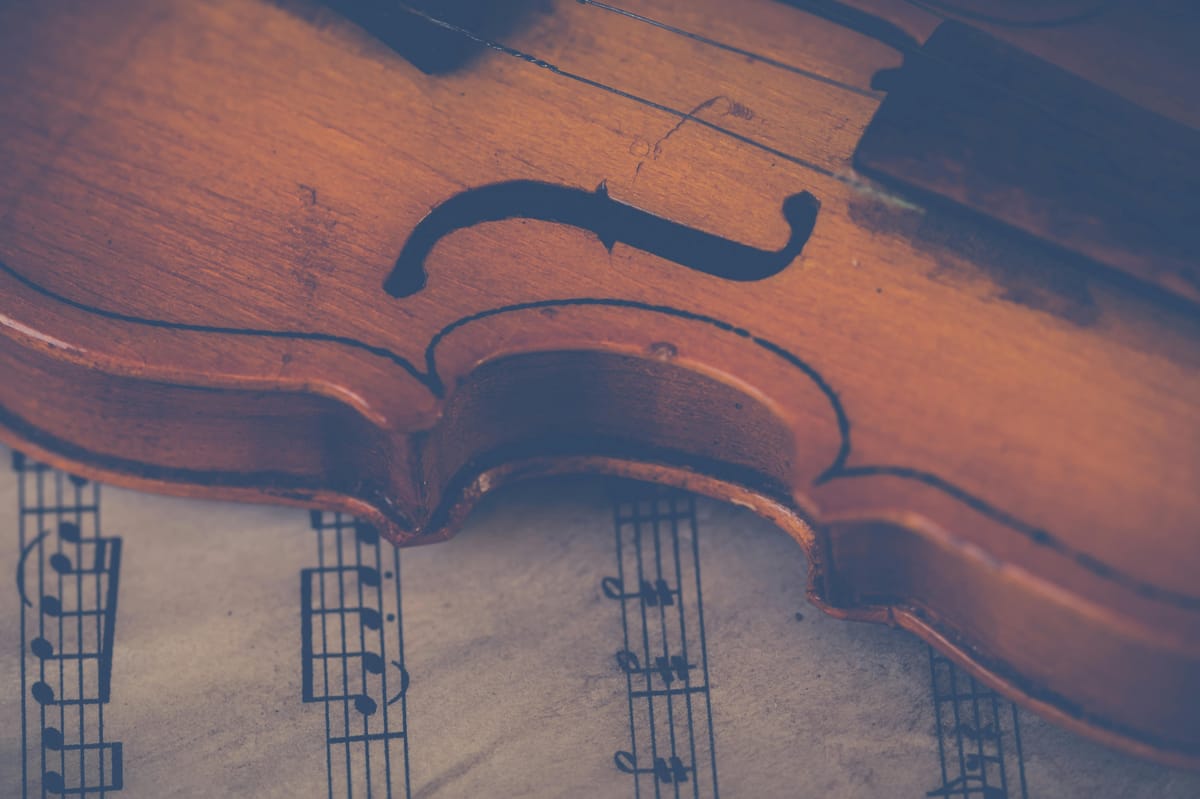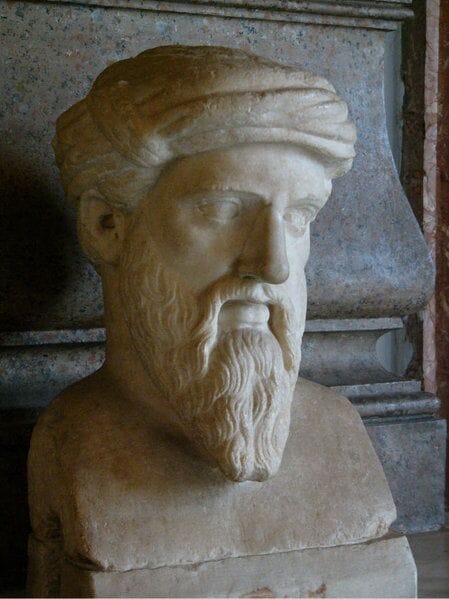Echoes Through Time: Classical Music's Lasting Impact
Classical music is more than beauty; it heals the mind, reduces stress, and stirs deep emotion. Across history, it has united cultures, inspired art, and preserved tradition. Its echoes still shape society, reminding us of music’s power to endure and connect us all.

Louis Armstrong once said, “Music is life itself,” and as much as those words are simple, they hold a lot of truth. Regardless of differences in backgrounds, music has always been one of the things that connects humans and adds a layer of excitement to life itself.
Classical music, in particular, has always been a staple in the music space since its emergence after the Renaissance, Medieval, and Baroque periods. Whether you’re into this specific genre of music, you’re bound to come across names like Beethoven and Mozart, especially because of their musical gifts that were evident from such a young age.
Whilst most eight-year-olds are busy building blanket forts or chasing fireflies, Mozart had composed his first symphony. His ability to create sonatas that exemplify mathematical complexity and grace has left an impact on the genre for generations to come. And it’s his ability to bring depth that paved the way for Romanticism. Although his name isn’t mentioned when we speak of revolutionaries, unlike Beethoven and Bach, he was able to craft music that stood the test of time within the rules and traditions of his era.
Speaking of Beethoven, not only did he expand on Mozart’s music, but it was through his willingness to display human complexities that showed music’s potential to be used as a form of expression. So we may owe Beethoven a big thank you for those sappy heartbreak songs we tend to have on repeat. His willingness to take risks and write music for humanity at large contributed to his universal appeal. All the emotional states humans experience, whether it’s grief or joy, can be found in his music.
Beyond the sound that’s pleasant to the human ear, classical music has a profound impact on the health, psychological, and cultural aspects that continue to influence our society in a number of ways.
Healing Through Harmony
The Neuroscience of Classical Music
Besides Mozart’s ability to make us feel deeply, listening to his music is said to improve our brain power and cognitive function. In 1993, physicist and University of California Professor Dr Gordon Shaw noticed in a control group that there was an increase in IQ when his students listened to Mozart, and it became known as “the Mozart Effect”. Despite receiving a lot of scepticism in this study, he believed that listening to Mozart warmed up parts of the brain that were linked to abstract thought. Other studies show there’s a short-term enhancement in spatial reasoning.
Listening to classical music stimulates different parts of the brain. The auditory complex, which processes the different sounds, and the limbic system connect all these sounds to our emotions, while the motor cortex even responds to the rhythm and prepares our bodies to move. So not only does listening to classical music mentally energize us, but it also emotionally grounds us.
Without a doubt, music has earned the right to be deemed “food for the mind” when it also plays a part in memory. A study published in the National Institute of Health, performed by the University of Helsinki in Poland, showed that just listening to even 20 minutes of classical music a day can modulate genes that are responsible for long-term memory, which is especially useful for people suffering from Alzheimer’s. It enhances emotional regulation and provides a suitable outlet for children and adults in a healthy way.
When it comes to neuroplasticity, classical music plays a unique role in helping the brain’s ability to form and reorganize neural connections. Children who get exposed to classical music tend to be at an advantage, as their minds are encouraged to recognize patterns, auditory discrimination, and focus, all of which play a part in their cognitive development. Not only is their spatial reasoning improved, but so are their abilities in problem-solving and language.
Health Benefits: From Stress Relief to Heart Health
Due to the impact classical music has on minds, it should come as no surprise that the same can be said for the heart. A study that was conducted in 2018 on the effect of different types of music on patients experiencing anxiety showed that classical music could slow down our heart rate and breathing.
Since it can slow down our heart rate and breathing, listening to it can be especially helpful for sleep-insomniacs. Instead of having to count sheep, listening to this kind of music, according to a 2008 study done by the Institute of Behavioural Science at Semmelweis University in Budapest, helps. This is because when the music played, it reduced the activity taking place in the sympathetic nervous system, which decreased anxiety and lowered blood pressure, which are also additional benefits of listening to classical music.
Even the physical health of our bodies is bound to experience some kind of impact from classical music. In fact, teams at Harvard found there was an amazing benefit to classical music. Music therapy has proven to be useful for stroke victims in regaining movement through a process called “entrainment”. Entrainment is a process in which the music pulse is repeated to activate the neurons in the brain. When you hear a steady rhythm, it will activate the auditory system, which will engage your motor system. Similarly, music can also be used to relieve pain. The same neurons that can be activated by music during the process of entrainment can be the answer to easing pain.
Cultural Significance and Social Influence of Classical Music
It’s become quite evident that classical music doesn’t exist in a vacuum. Beyond just being an art form, it can be used in the medical field and has been shaping society. It’s inspired generations of artists and has remained an integral part of history and modern culture. It’s found ways to weave itself into different facets of our lives after once being played in royal courts in Europe, and now on our streaming platforms.
A Trip Back In Time: Historical Influence
In Europe, classical music wasn’t just used as a way to entertain but was also a reflection of the power, faith, and social ideas shifting. Composers such as Mozart and Haydn would perform in the courts of monarchs and aristocrats, and their pieces would reinforce the grandeur and social hierarchies. Court concerts became an opportunity to display cultural dominance and refinement in a way that proved artistic merit was just as imperative as political weight.
Religion played a big role as well. The sacred works, from Gregorian chants to even Bach’s Mass in B minor, which is considered monumental, were used to encourage feelings of devotion and express theological ideas to congregations. At a time when literacy was low, music was used as a language in expressing spirituality while enforcing the church’s authority, as it offered communities a shared emotional and cultural experience.
As Europe entered a period of Enlightenment, music by composers such as Beethoven became a symbol for change, as his music had themes of freedom and resilience. His Eroica Symphony, for instance, was originally dedicated to Napoleon; however, it also became a song that represented the disillusionment with tyranny and declaration of human strength. Beethoven, despite losing his hearing, produced some of the most profound pieces, but also embodied individualism. His own story reinforced the Romantic era’s intrigue with the artist being seen as a heroic figure who was defiant by challenging social conventions by shining a light upon deeper issues and truths of the human experience.
Inspiration Across Generations
Instead of fading into the background, classical music planted seeds that evolved into entirely new genres of music. A lot of jazz musicians draw inspiration from the harmonic structures and improvisational structures of Baroque composers. Classical motifs were borrowed by Rock and roll and adapted into the electric framework. Despite being in a digital era, classical music remains a foundational influence.
Famous artists such as the Beatles are a great example of citing Beethoven and Bach as some of their influences. In fact, their song Because has classical techniques and was inspired by Beethoven’s Moonlight Sonata. Even in the contemporary music space, artists like Kanye West have incorporated classical music. His song Gone features orchestral samples layered with hip-hop production that demonstrates how symphonic sounds elevate rap music to a cinematic level. Alicia Keys has credited receiving inspiration from Chopin and his emotive piano compositions that have helped shape her own soulful ballads. These examples are just the tip of how well classical music continues to provide different textures and structures for creators to expand on.
Classical Music in Modern Culture
Outside of music studios and concert halls, classical music is woven into our everyday lives. Advertisers often like to use it to portray their brand or product as sophisticated or luxurious. A car company may use a symphony to emphasize precision and elegance, while an institution may use it to suggest reliability and tradition. The cultural associations with classical music of exuding discipline, refinement, and depth make it a powerful tool in branding.
Hollywood movies and video games also make use of classical pieces to evoke emotions. From 2001: A Space Odyssey’s use of Strauss’s Also Sprach Zarathustra to video game franchises like Assassin’s Creed make them more immersive and heighten the drama for audiences. This makes it evidently clear that its ability to create drama, heighten tension, or intimacy remains unmatched.
Education and tradition also ensure the longevity and survival of classical music. It plays a central role in classrooms worldwide where students learning instruments start by learning classical pieces. By learning these pieces, they develop discipline and technical skill. But outside the classroom, it also marks significant milestones in our lives. Graduations, weddings, and even some ceremonies can frequently include works like Pachelbel’s Canon in D or Elgar’s Pomp and Circumstance. These kinds of traditions truly reinforce the fact that classical music isn’t just art but a sign in culture of significance and continuity.
Conclusion
With all the health benefits and ways its been embedded into the very heart of society, it’s the emotions it evokes that make it a genre that’ll never lose its grip on humanity. More often than not, one may find themselves tearing up listening to composers of today, such as Ludivico Einaudi or Alexis Ffrench, due to the way a piece has been beautifully composed. Because that’s what music does, it reminds us that magic just might exist if you listen closely and pay attention to each note. It gives more meaning to each memory and even reminds us how important it is to take a moment to observe the world around us. It even teaches us that words don’t need to be said for anyone to get the message trying to convey by the composer. And in the end, classical music will continue to have a lasting impact on every generation.
Written by Chantelle Matawu



Comments ()